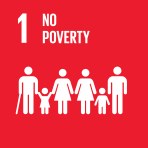Abstract
This Policy Brief aims to inform policymakers of the potential impact of COVID-19 (coronavirus) on poverty. It will explore the implications of COVID-19 through various macroeconomic scenarios, ranging from the very optimistic to the pessimistic. The findings suggest that complete eradication of extreme poverty by 2030 looks highly unlikely even in the most optimistic scenario and that the global number of people living in extreme poverty could in fact continue to go up in the more pessimistic scenario. The final section will summarize the findings and discuss policy implications. Policies to reduce inequality and promote a country’s social and macroeconomic resilience, such as the strengthening of labour standards, and the expansion of the social protection systems and universal health coverage, are needed now more than ever. As developing countries currently face the prospect of costly debt crises with far-reaching consequences, global action is urgently needed. The window to mitigate the disastrous long-term consequences of COVID-19 on poverty is closing rapidly.
- 25 Nov 2020




